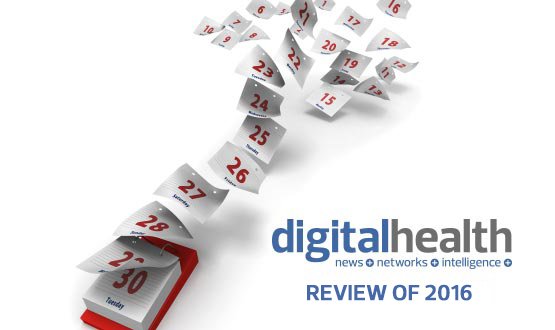Most read Digital Health features and columns, 2016
- 28 December 2016

As soon as Cambridge University Hospitals NHS Foundation Trust announced that it was going to be leading an eHospital programme worth £200 million over ten years, it was clear that it was going to be heading up one of the most closely watched deployments, ever.
Interest only heightened when the trust announced it would be the first in the UK to implement the US Epic electronic patient record. And when initial problems with the deployment contributed to the departure of its chief executive, Keith McNeil, just before Cambridge was put into special measures.
So it’s not surprising that a feature following up on the deployment – ‘Cambridge: big bang reality’ – was the best read feature on Digital Health in 2016.
However, readers have an appetite for knowing how deployments of all kinds have gone. Five of the best read features of the year were follow-ups or site visits.
And a sixth was the wit and wisdom of two healthcare IT industry veterans, Colin Sweeney and Clive Stringer of King’s College Hospital NHS Foundation Trust.
They passed on just a few of the things they had learned over twenty years of developing an EPR at the London hospital, which has since started to implement Allscripts Sunrise Clinical Manager, before stepping down this spring.
Most read features, 2016, one to five:
1. Cambridge: big bang reality
2. Lorenzo: the end of the beginning
3. Sixteen healthcare IT predictions for 2016
4. NHS Digital’s plans for a digital NHS
5. Hull of a job: Hull and East Yorkshire Hospitals’ EPR deployment, six months on
Readers were also anxious to know what was going on at the ‘big picture’ level in 2016. Digital Health’s annual round-up of predictions for the year ahead from central NHS IT bodies, trusts and industry was another of the best read features of the year.
As was a three-way interview with the leaders of NHS Digital about their plans for helping to create a digital NHS, which was published this autumn after a year of change at the top – which included McNeil’s appointment as NHS England’s first chief clinical information officer.
Most read features, 2016, six to ten:
6. Colin and Clive talk 20 years of EPRs
7. Nottingham: lacing IT all together
8. And breathe: West Suffolk the other side of its Cerner go-live
9. Tracking down kidney failure: Western Sussex develops AKI alerts
10. Totes amazing: Pharmacy 2U site visit
On the column front, Dr Joe McDonald, the chair of the CCIO Network, secured the top-read slot once again, with a piece on the pros and cons of emailing patients.
But the subject of how to use modern, commercial technologies to interact with patients was a theme that Digital Health’s columnists returned to again and again. GP Dr Neil Paul’s best read column was also about using email and text to communicate with patients.
In a year in which Dame Fiona Caldicott published a third report on NHS security and information governance, and the care.data project was scrapped – or not – the issue of patient consent and how to secure it was another hot topic of interest.
While, on the purely technology front, blockchain – the technology behind Bitcoin – attracted both interest and considerable scepticism about how useful it might turn out to be in healthcare. So it is, perhaps, a tech to watch in 2017.
Most read columns, 2016, one to ten:
1. Joe’s view: of emailing patients
2. Joe’s view: of consent to share
3. Guest column (Gareth Baxendale): Bitcoin technology and the NHS
4. Enter the CCG: on flying pig documents
5. Another view: of appointments, texts and email
6. Joe’s view: of lava lamps (and the Great North Care Record)
7. Ewan Davis: the content challenge
8. Davey Winder: hacking healthcare
9. Ade Memoire: how long?
10. Ewan Davis: working on the (block)chain gang




